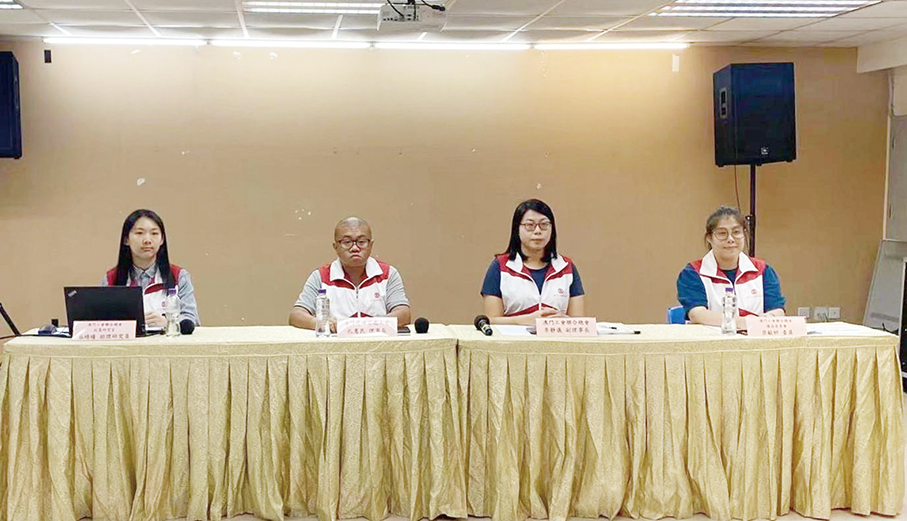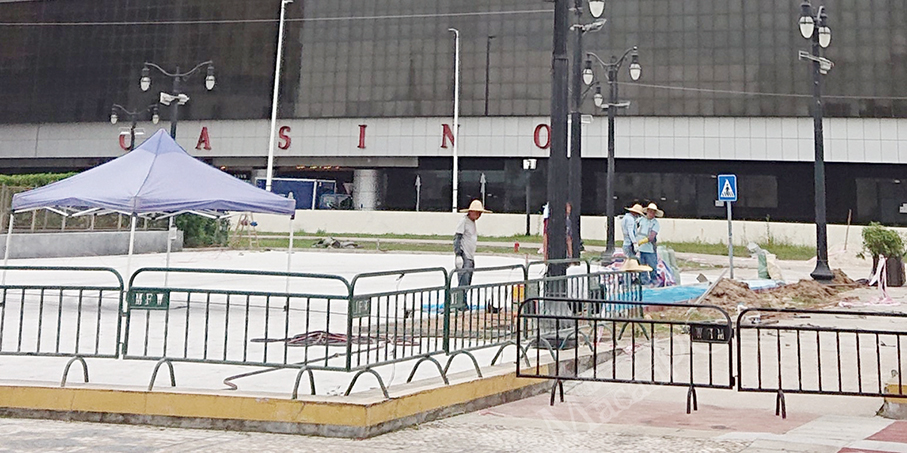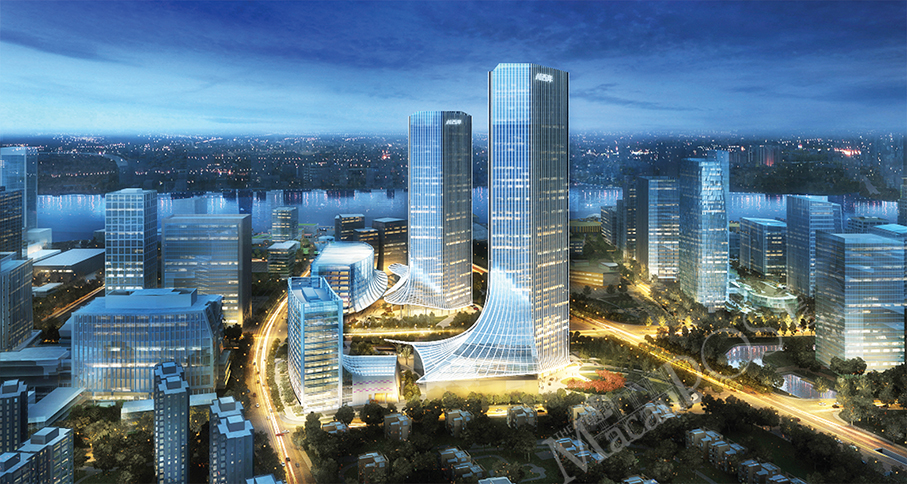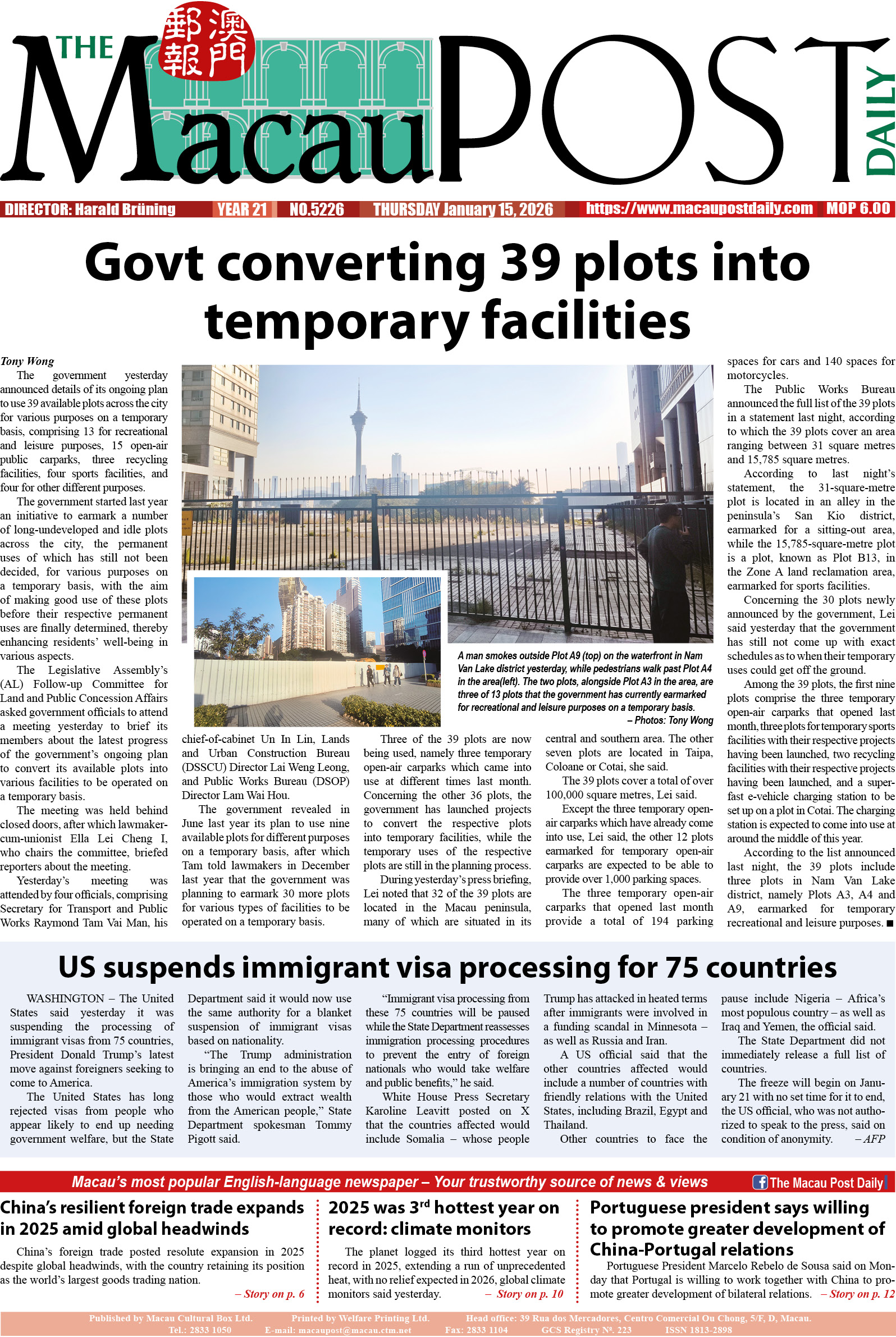The Macau Federation of Trade Unions (FAOM) has recently conducted a survey concerning Macau’s outdoor workers, the findings of which show that 70 percent of the 1,004 respondents believe that the government should come up with policies outlining the requirements for employers to safeguard the safety of their employees working outdoors in hot weather by improving their outdoor working environment, arranging flexible work schedules and providing heat-protection equipment.
The Macau Federation of Trade Unions (commonly known as Gung Luen in Cantonese), in conjunction with the Macao Construction Industry General Union, carried out the survey between March and August among employees of various local industries. A total of 1,004 valid questionnaires were received, of which nearly 50 percent of the respondents said they work outdoors for at least one hour a day.
The two labour unions co-hosted a press conference on Friday at the Macao Construction Industry General Union’s premises on Rua de Marques de Oliveira, releasing the findings of the survey.
Directly-elected lawmaker Ella Lei Cheng I, a vice-president of the Macau Federation of Trade Unions, pointed out during the press conference that the existing legislation only stipulates that outdoor workers should be provided with appropriate protection against adverse weather conditions or excessive sunlight, and that the temperature and humidity in their workplace should be maintained within an “appropriate” range, without specific implementation norms and guidelines: “There are still inadequacies in the labour protection for outdoor workers in hot weather”.
She suggested that drawing on the experience and practices of other regions, the government should formulate more specific and detailed guidelines to specify the standards of labour protection, covering various aspects such as classification of high temperature levels, adjustment of working hours, rest-break arrangements, risk assessment, optimisation of the working environment, as well as formulation of contingency plans and training of staff, thus progressively building up a system that comprehensively covers safety protection for workers, especially those who work outdoors, under the conditions of very hot and other inclement weather conditions, with special emphasis on the provision of appropriate rest-break arrangements and protective equipment for employees.
According to the findings, 87.7 percent and 79.8 percent of the respondents said, respectively, that their work units would unlikely suspend their work or prolong their breaks due to the hot weather, while more than 65 percent indicated that their workplaces did neither provide them with equipment nor materials to prevent heat stroke.
Over half of the respondents said, the findings noted, that their physical and mental health have been “relatively” and “significantly” affected by the hot weather, while more than 40 percent of the respondents said that hot weather has a great impact on their work.
The findings show that nearly 60 percent and over 50 percent of the respondents expected, respectively, the government to formulate guidelines on working in hot weather and improve the existing legal system for the protection of outdoor workers, with 69 percent, 53.3 percent, 51.9 percent, 48.7 percent and 39.1 percent, respectively, saying they hope that their employers would appropriately extend their rest breaks, perfect their outdoor working environment, provide sufficient heat-protective equipment, make reasonable arrangements for their outdoor workload, and set up flexible work schedule arrangements.
In formulating specific measures, Lei said, consideration should be given to the characteristics of different occupations, job types and geographical areas in customising strategies to prevent heat stroke and reduce exposure to high temperatures while, at the same time, improving its monitoring mechanism to ensure effective implementation of all these desired measures.
Lei also called on the government to enhance public awareness of the hazards of high-temperature work by popularising outdoor workers’ safety knowledge and strengthening first aid training about high temperature work safety for enterprises, so as to enhance employees’ self-protection and emergency response capability.

Representatives of the Macau Federation of Trade Unions (commonly known as Gung Luen in Cantonese) and Macao Construction Industry General Union, including lawmaker-cum-unionist Ella Lei Cheng I (second from right), pose during Friday’s press conference about the findings of a survey concerning the situation of Macau’s outdoor workers, at the Macao Construction Industry General Union’s office on Rua de Marques de Oliveira. – Photo courtesy of TDM

This file photo taken in May shows outdoor workers at a roadwork project in Nape. – Photo: Tony Wong







